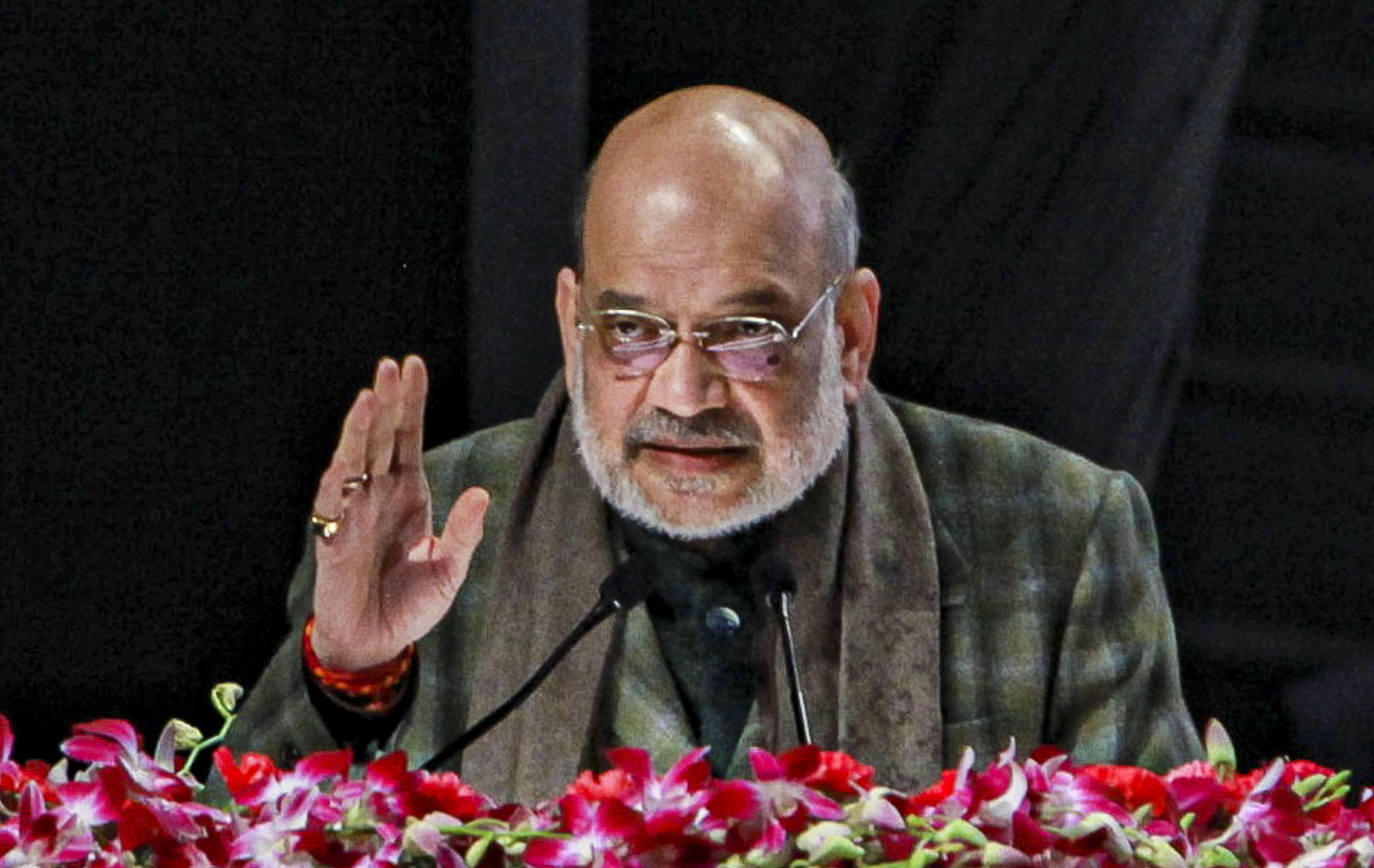- “If we don’t take action now, it will be too late in ten years; over 44,792 kg of seized narcotics worth Rs 2,411 crore will be incinerated in the next 14 days.”
New Delhi, Jan 11: Union Home Minister Amit Shah highlighted the urgent necessity for a resolute battle against narcotics to protect India’s future generations. Speaking at a regional conference on “Drug Trafficking and National Security,” organized by the Narcotics Control Bureau (NCB), he stressed a comprehensive governmental approach and enhanced collaboration between the Centre and States to tackle the escalating issues of drug addiction and trafficking.
Shah pointed out that 7% of India’s population struggles with drug addiction and warned, “If we don’t act now, it will be too late in ten years.” He noted the destructive potential of drug addiction on entire generations, as reflected in the experiences of many countries. “No nation can be secure if its youth are caught in drug addiction,” he asserted.
Reiterating the government’s zero-tolerance stance on drugs, Shah declared that during a drug disposal initiative from January 11 to 25, more than 44,792 kilograms of seized narcotics, valued at Rs 2,411 crore in the international market, will be destroyed.
He praised the achievements of the last decade, reporting that since 2014, authorities have seized 24 lakh kilograms of drugs worth over Rs 56,000 crore. “While some critics argue that drug consumption is on the rise, these statistics actually reflect the effectiveness of enforcement agencies in dismantling drug networks rather than an increase in usage,” Shah stated.
Emphasizing the importance of thorough investigations and financial scrutiny of drug syndicates, he called for dismantling narco-terrorism networks completely. Shah encouraged states to adopt technologies such as geo-tagging, videography, and real-time data sharing via the National Narcotics Helpline ‘MANAS’ portal to enhance the efficiency of anti-drug operations. Additionally, he recommended increased utilization of the NIDAAN database to monitor trafficking activities.
The Union Home Minister identified notable deficiencies in enforcement infrastructure, including the absence of special NDPS courts in numerous states. He urged states to make regulations more adaptable, train NCB officials, and ensure that prosecutions result in the appropriate punishment for offenders.
Shah asserted the necessity for a firm yet compassionate approach toward rehabilitating drug addicts, emphasizing, “Addicts should be viewed as victims of a larger issue. We need comprehensive investigations to dismantle syndicates while supporting addicts in reintegrating into society.”
He called upon state governments to take a decisive stance against drug traffickers by seizing their assets under the Prevention of Illicit Traffic in Narcotic Drugs and Psychotropic Substances Act and ensuring expedited trials through special courts.
Shah also urged district police chiefs to work towards making their regions drug-free and proposed regular assessments of anti-drug initiatives at the district level. He stressed the importance of Chief Ministers, Chief Secretaries, and Directors General of Police (DGPs) to ensure that anti-drug strategy meetings yield actionable outcomes, highlighting the establishment of robust State Forensic Science Laboratories as vital in the fight against narcotics.
Underlining Prime Minister Narendra Modi’s commitment to a drug-free India by 2047, Shah stated that the Ministry of Home Affairs is implementing a three-pronged strategy: fortifying institutional frameworks, enhancing inter-agency collaboration, and launching extensive public awareness campaigns under the ‘Nasha Mukt Bharat’ initiative.
“India is dedicated to preventing even a single kilogram of drugs from crossing its borders. This demands comprehensive investigations, the dismantling of trafficking networks, and a coordinated approach from all enforcement bodies,” Shah concluded. (KNO)


Leave a Reply